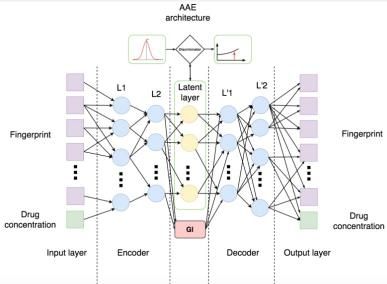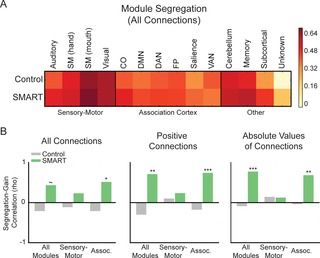Page 10602
Dec 23, 2016
How We Got Closer to Our Cyberhuman Future in 2016
Posted by Klaus Baldauf in categories: biotech/medical, cyborgs

https://youtube.com/watch?v=Gb8H8aFAp5I
Humans’ relationship with technology is growing ever-more intimate. In a sense, we have already become cyborgs, tethered to our external electronic devices, outsourcing to them our memories, our sense of direction, our socializing, our lives. But, if the past year’s technological advancements are any indication, our relationship with technology is going to get a whole lot closer. Technology could one day soon become regularly integrated with our biology to manage disease and augment human ability. Here were some of the biggest breakthroughs of the past year on the cyborg front.
Dec 22, 2016
Advanced Tissue Biofabrication (ATB) Manufacturing USA Institute Will Focus on 3D Bioprinting Among Other Biofabrication Technologies
Posted by Karen Hurst in categories: 3D printing, bioprinting, economics, government, security

There’s really no sector in the United States (or much of the world) that has been untouched by the development of advanced manufacturing technologies – and no one seems to be underestimating the importance of the further development of those technologies in order to keep the country competitive. To that end, in 2014 the government established the National Network for Manufacturing Innovation (NNMI), more commonly known as Manufacturing USA.
The program brought together the industrial, academic, nonprofit and governmental sectors to establish a network of advanced manufacturing institutes for the purpose of accelerating new manufacturing technologies. President Obama proposed that the network grow to 45 institutes over the course of 10 years, and as of today, 12 have been established. The 12th, which was just announced by the Department of Defense, will be the Advanced Tissue Biofabrication (ATB) Manufacturing USA Institute, and will be led by the Advanced Regenerative Manufacturing Institute (ARMI), based in Manchester, New Hampshire.
We say a fond farewell to 18 men and women who left a lasting impression on the tech industry.
Dec 22, 2016
US Military Test-Fires SM-6 Weapons in Missile Defense Test
Posted by Karen Hurst in category: military
The US Missile Defense Agency and Navy have test-launched two SM-6 missiles in a ballistic missile defense test. See the photos here.
Dec 22, 2016
Can technology stop another truck attack?
Posted by Karen Hurst in categories: security, transportation
LONDON The attack on a Berlin Christmas market showed the devastation that can be wrought by the simple act of driving a truck into crowds, and the problems in preventing another massacre.
The attack in Germany on Monday, in which 11 people were killed by the truck in addition to the murder of the Polish driver, mirrored a militant raid in the French city of Nice in July that killed 86.
Hauliers increasingly track their vehicles in real time but security experts say the technology cannot be used to stop an attack if a lorry has been hijacked to be used as a weapon.
Dec 22, 2016
The world’s first demonstration of spintronics-based artificial intelligence
Posted by Karen Hurst in categories: particle physics, robotics/AI
Excellent.
Researchers at Tohoku University have, for the first time, successfully demonstrated the basic operation of spintronics-based artificial intelligence.
Artificial intelligence, which emulates the information processing function of the brain that can quickly execute complex and complicated tasks such as image recognition and weather prediction, has attracted growing attention and has already been partly put to practical use.
Continue reading “The world’s first demonstration of spintronics-based artificial intelligence” »
Dec 22, 2016
Artificial intelligence to generate new cancer drugs on demand
Posted by Karen Hurst in categories: biotech/medical, business, robotics/AI
Summary:
- Clinical trial failure rates for small molecules in oncology exceed 94% for molecules previously tested in animals and the costs to bring a new drug to market exceed $2.5 billion
- There are around 2,000 drugs approved for therapeutic use by the regulators with very few providing complete cures
- Advances in deep learning demonstrated superhuman accuracy in many areas and are expected to transform industries, where large amounts of training data is available
- Generative Adversarial Networks (GANs), a new technology introduced in 2014 represent the “cutting edge” in artificial intelligence, where new images, videos and voice can be produced by the deep neural networks on demand
- Here for the first time we demonstrate the application of Generative Adversarial Autoencoders (AAEs), a new type of GAN, for generation of molecular fingerprints of molecules that kill cancer cells at specific concentrations
- This work is the proof of concept, which opens the door for the cornucopia of meaningful molecular leads created according to the given criteria
- The study was published in Oncotarget and the open-access manuscript is available in the Advance Open Publications section
- Authors speculate that in 2017 the conservative pharmaceutical industry will experience a transformation similar to the automotive industry with deep learned drug discovery pipelines integrated into the many business processes
- The extension of this work will be presented at the “4th Annual R&D Data Intelligence Leaders Forum” in Basel, Switzerland, Jan 24-26th, 2017
Thursday, 22nd of December Baltimore, MD — Scientists at the Pharmaceutical Artificial Intelligence (pharma. AI) group of Insilico Medicine, Inc, today announced the publication of a seminal paper demonstrating the application of generative adversarial autoencoders (AAEs) to generating new molecular fingerprints on demand. The study was published in Oncotarget on 22nd of December, 2016. The study represents the proof of concept for applying Generative Adversarial Networks (GANs) to drug discovery. The authors significantly extended this model to generate new leads according to multiple requested characteristics and plan to launch a comprehensive GAN-based drug discovery engine producing promising therapeutic treatments to significantly accelerate pharmaceutical R&D and improve the success rates in clinical trials.
Dec 22, 2016
Modular Brain Network Organization Predicts Response to Cognitive Training in Older Adults
Posted by Karen Hurst in categories: biotech/medical, life extension, neuroscience
Cognitive training interventions are a promising approach to mitigate cognitive deficits common in aging and, ultimately, to improve functioning in older adults. Baseline neural factors, such as properties of brain networks, may predict training outcomes and can be used to improve the effectiveness of interventions. Here, we investigated the relationship between baseline brain network modularity, a measure of the segregation of brain sub-networks, and training-related gains in cognition in older adults. We found that older adults with more segregated brain sub-networks (i.e., more modular networks) at baseline exhibited greater training improvements in the ability to synthesize complex information. Further, the relationship between modularity and training-related gains was more pronounced in sub-networks mediating “associative” functions compared with those involved in sensory-motor processing. These results suggest that assessments of brain networks can be used as a biomarker to guide the implementation of cognitive interventions and improve outcomes across individuals. More broadly, these findings also suggest that properties of brain networks may capture individual differences in learning and neuroplasticity.
Trail Registration: ClinicalTrials.gov, NCT#00977418
Citation: Gallen CL, Baniqued PL, Chapman SB, Aslan S, Keebler M, Didehbani N, et al. (2016) Modular Brain Network Organization Predicts Response to Cognitive Training in Older Adults. PLoS ONE 11(12): e0169015. doi:10.1371/journal.pone.0169015
Dec 22, 2016
China claims success with new ‘reactionless engine’ EmDrive
Posted by Karen Hurst in categories: physics, space travel
In what appears to be the latest breakthrough in space travel technology, China claims it has made a great leap forward with its ‘reactionless’ Electromagnetic Drive, or simply, EmDrive – an engine that uses only the power of electromagnetic radiation contained within a microwave cavity.
The EmDrive flies in the face of physics – going against the law of conservation of movement; producing mechanical movement but without an exchange of matter.

















